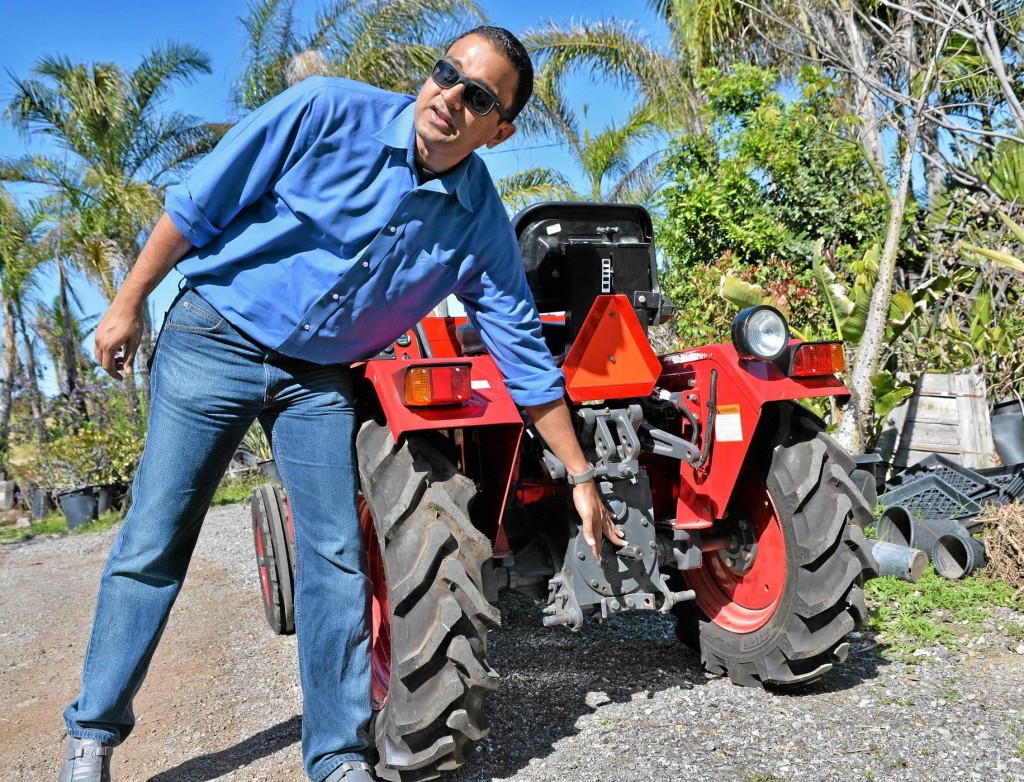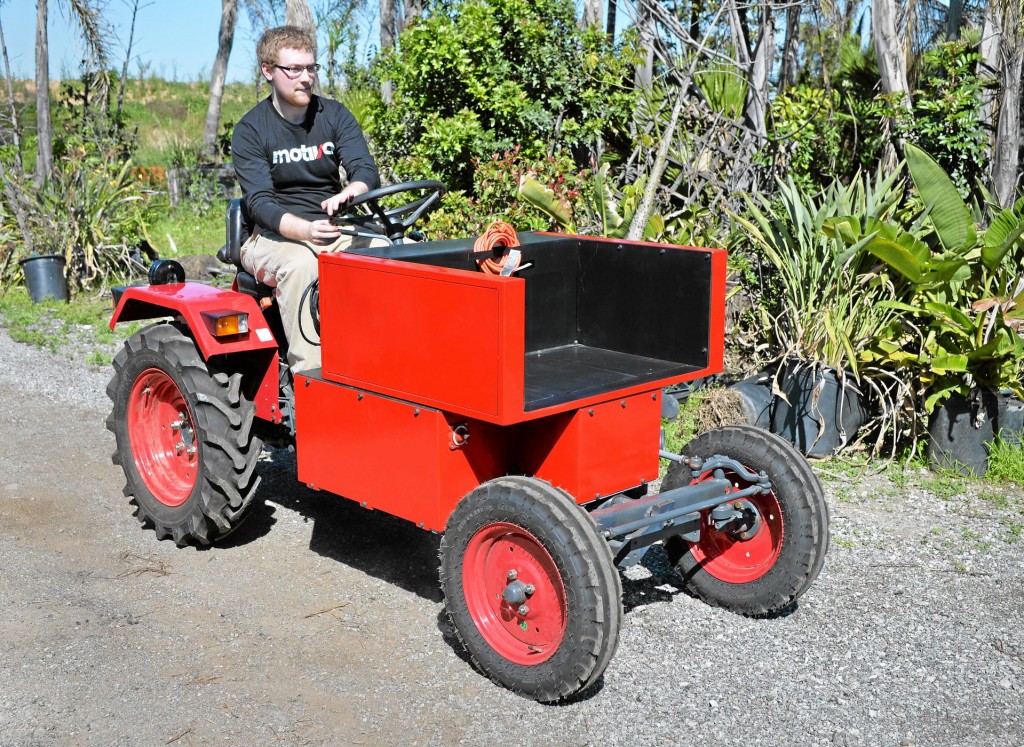After building luxury toys like high-speed electric boats and futuristic three-wheeled motorcycles, the Torrance design studio Motivo Engineering is getting into subsistence farming.
The company has developed a multi-purpose electric tractor to help poor farmers in India till the soil and, more importantly, provide them with reliable access to electricity.
“After food and water, electricity can make a huge difference to your quality of life,” said Motivo CEO Praveen Penmetsa.
Rather than tackle the larger infrastructure problem, Motivo — which specializes in electric vehicle design and energy storage — built a tractor that is essentially a large battery with wheels.
A standard extension cord will charge the battery overnight, when electric grids in India are less prone to failure, and a standard solar panel attachment allows farmers to charge up for free during the day.
Beyond energy independence, Motivo wanted to build a tool that farmers could adapt to their individual needs. The tractor can drive 40 kilometers or plough a 5-acre field on a single charge.

A rotating piston that sticks out the back allows farmers to attach pulleys, belts or whatever use they might come up with. An open bed on the front can haul produce to market or house a portable generator — essentially converting the electric vehicle into a hybrid.
“It’s like a Swiss Army knife for agricultural power,” Penmetsa said.
The tractor is being developed with an $800,000 grant from the United States Agency for International Development (USAID), which has launched a global competition to create green technology solutions in agriculture. Motivo has finished its first working prototype, which Penmetsa is presenting at an international forum for agricultural innovation in Abu Dhabi this week.
The first three prototypes will be donated to organizations in India that will rent the tractor to nearby farmers, who will be able to reserve the tractor using their cell phones.
“It’s like the Zip Car model,” Penmetsa said. “Anyone in the village can borrow it, use it and give it back.”
Penmetsa hopes to get the cost of the vehicle down to about $10,000 a unit, which is about twice the cost of a gas-powered tractor. The fuel savings would, over time, make up for the difference in cost, Penmetsa said, making the tractors attractive to larger farms.
For poorer farmers who can’t afford a tractor, the idea would be to sell the tractors to entrepreneurs who would then rent them by the hour to smaller farmers.
Higher-end versions, with longer-lasting batteries, would be sold in the U.S. and Europe. Organic, off-the-grid farms in Northern California have expressed interest. Horse ranchers on the Palos Verdes Peninsula like the idea because diesel fumes and loud engines spook the animals, Penmetsa said.
Penmetsa comes from a long line of farmers in India, where much of his family still lives. When he came to the U.S. in 1999 to study electrical engineering, he said he felt like he was running away from his responsibilities as the eldest son, who typically is expected to take over the family business.
“These lands have been in our family for three or four generations or more,” Penmetsa said. “Now, it’s a little bit like me going back.”

